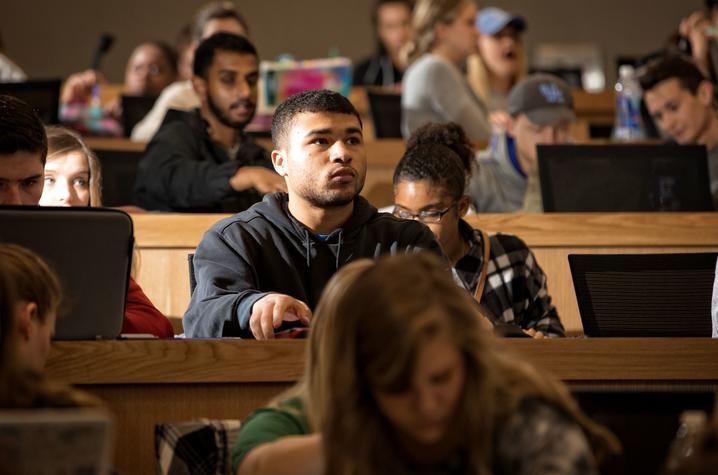Colloquium Speaker Series
Colloquium Speaker Series: An Overview of the Miami-Illinois Language
In this presentation, David Costa will provide an introduction to MiamiIllinois, an Algonquian language of Indiana and Illinois. Costa will first discuss the geographic setting of Miami-Illinois and its place with Algonquian, following with an overview of the data sources on the language. He will also provide a brief sketch of the phonology of the Miami-Illinois, and, time permitting, finish with a discussion of some of the more notable grammatical features of the language, such as animacy, transitivity, pro-drop, obviation, and basic word order
A MARVEL-ous Homecoming: Creating conlangs for Captain Marvel
Constructed languages have become a known quantity in media today: random gibberish no longer passes under the constant scrutiny and analysis of the internet. Fans expect a structured language. Even the phenomenon of Marvel movies are not immune to this: From the Dark Elf language in Thor: The Dark World to the lesser known languages like Torfan and Skrull in Captain Marvel, you can find conlangs throughout the Marvel Cinematic Universe. But how are these languages made? University of Kentucky alumnus and conlanger Joseph Rhyne details the creative process behind the Torfan and Skrull languages and conlangs' impact on culture today.
Schedule:
5-6pm: Lecture (UKAA Auditorium)
6-7pm: Reception (Alumni Gallery)
Raciolinguistic Ideologies in German Language Education: A Corpus-Analytic Approach
Pre-Reading
https://educationallinguist.wordpress.com/2015/06/14/why-we-need-raciolinguistics/
Software/Corpus Tools
Please come to seminar with your laptop, prepared to access the following corpus tools. All of these are web-based, so there are no downloads required; however, some require advance registration.
Datenbank für gesprochenes Deutsch (Please register for an account–registration takes 1-2 business days, so please do so in advance!)
Linguistic Inquiry and Word Count (No registration required. Just be ready to navigate to the homepage and we will take it from there)
Sketch Engine (Please register for 30-day free trial within 30 days of Oct. 11; in the long-term, subscriptions are affordable and many Universities purchase institutional subscriptions)
LIN Grad Student Orientation
New MALTT student orientation.
Finding the Common Link: Linguistics’ Role in Social Inequality
Our world is rich in cultural differences, but the one connecting factor between all is language. Yet, as powerful as it can be to connect cultures, it can also work to promote discrimination between them.
UK's Spring 2019 Dean's List Announced
By Lori Adams

The University of Kentucky has released its Dean's List for the spring 2019 semester. A total of 6,562 students were recognized for their outstanding academic performance.
College of Arts & Sciences Commencement Ceremony
For more information, visit: https://www.uky.edu/commencement/springceremonies
